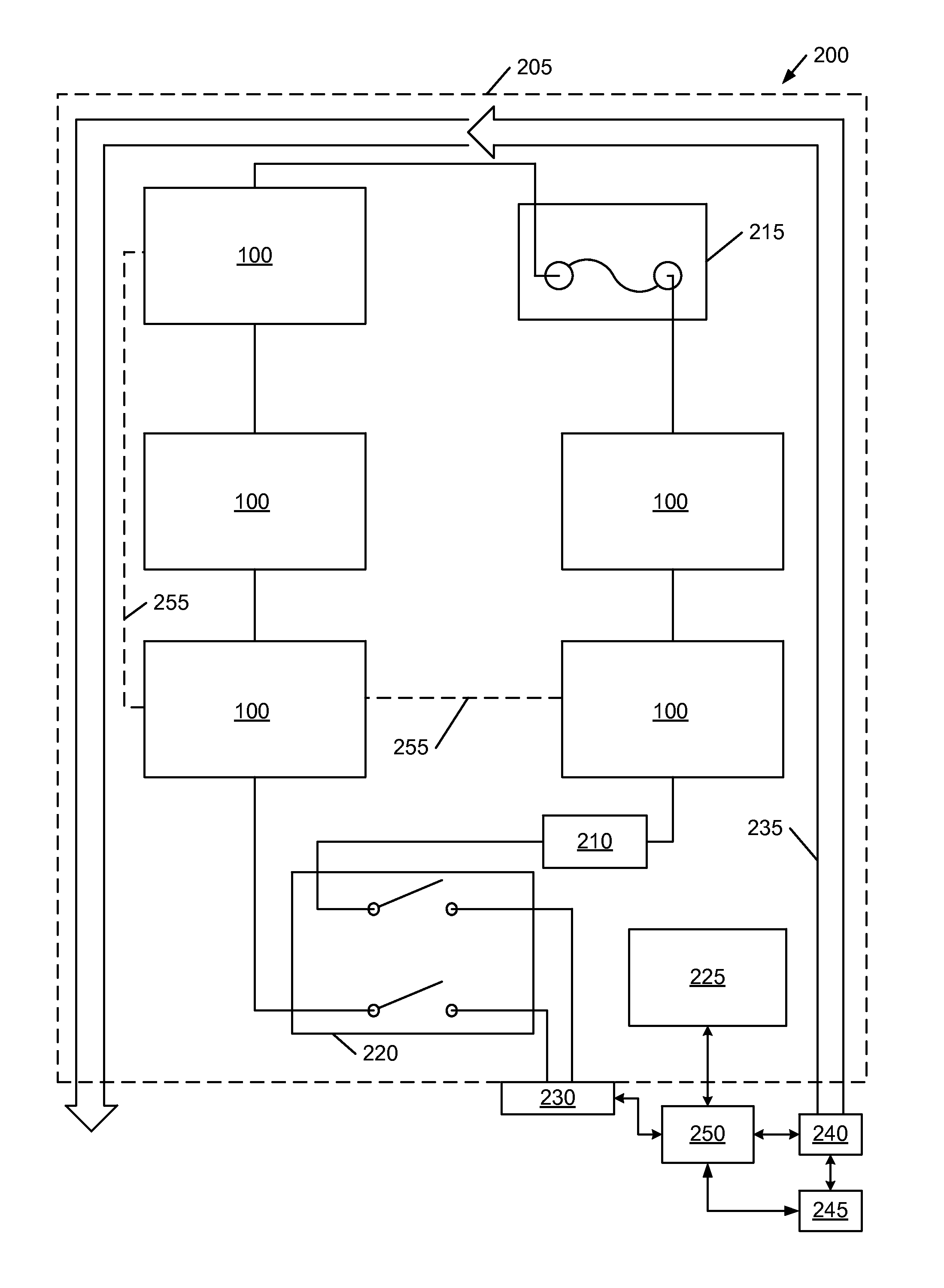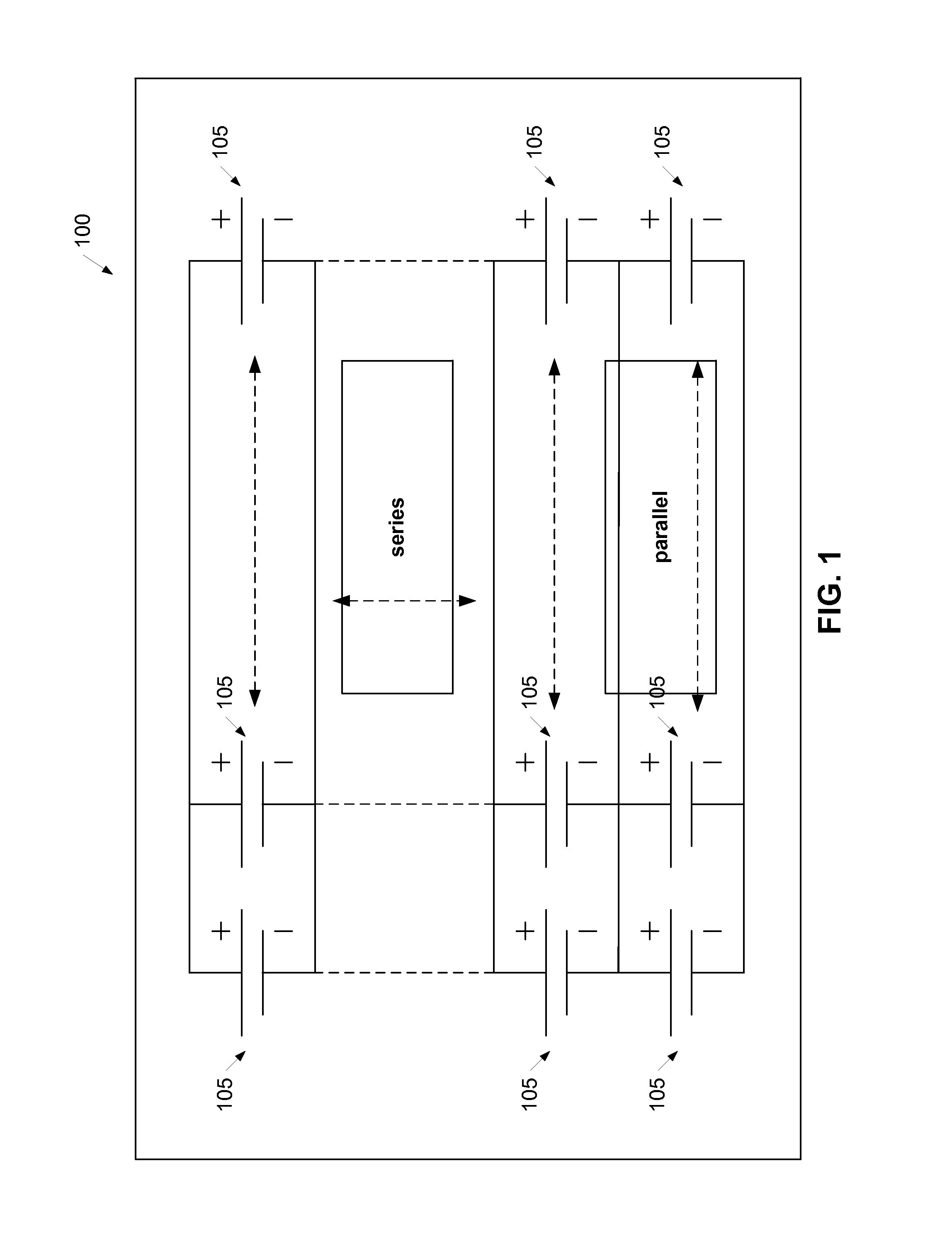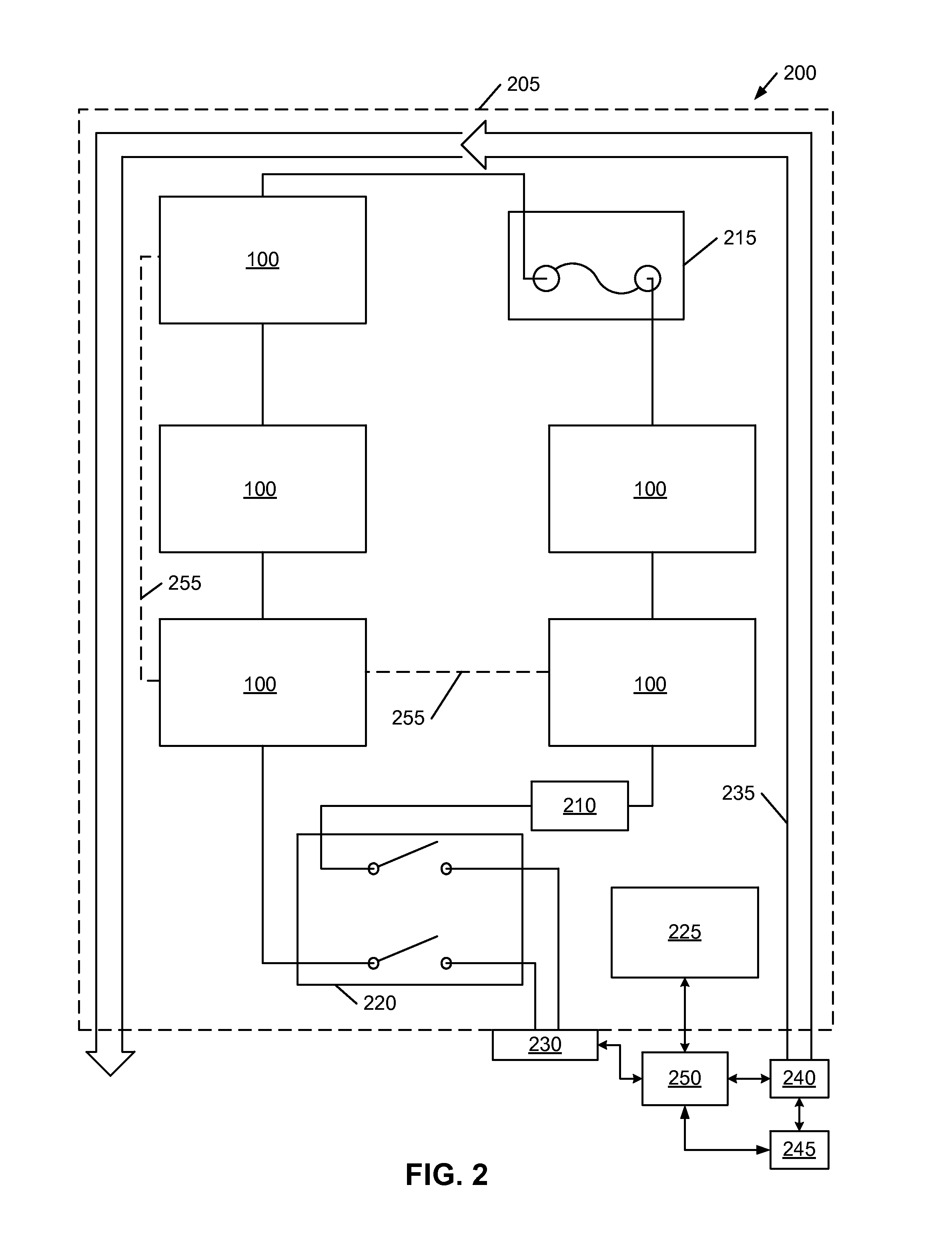Detection of over-current shorts in a battery pack using pattern recognition
a pattern recognition and over-current technology, applied in the direction of mechanical power/torque control, emergency protective arrangements for limiting excess voltage/current, electric devices, etc., can solve the problem that electric vehicles may only be able to sustain operation at their maximum current, and most short-circuit protection devices have a very short thermal time constant, so as to reduce risks and reduce risks
- Summary
- Abstract
- Description
- Claims
- Application Information
AI Technical Summary
Benefits of technology
Problems solved by technology
Method used
Image
Examples
Embodiment Construction
[0024]Embodiments of the present invention provide an apparatus and method providing to detecting and responding to potentially hazardous over-current due to internal short circuit to limit possible excessive thermal conditions of the individual battery cells and modules. The following description is presented to enable one of ordinary skill in the art to make and use the invention and is provided in the context of a patent application and its requirements.
[0025]Various modifications to the preferred embodiment and the generic principles and features described herein will be readily apparent to those skilled in the art. Thus, the present invention is not intended to be limited to the embodiment shown but is to be accorded the widest scope consistent with the principles and features described herein.
[0026]FIG. 1 illustrates an exemplary battery module 100 having a collection of parallel and / or series connected battery cells 105. Battery module 100 design may include a few to 100's of...
PUM
 Login to View More
Login to View More Abstract
Description
Claims
Application Information
 Login to View More
Login to View More - R&D
- Intellectual Property
- Life Sciences
- Materials
- Tech Scout
- Unparalleled Data Quality
- Higher Quality Content
- 60% Fewer Hallucinations
Browse by: Latest US Patents, China's latest patents, Technical Efficacy Thesaurus, Application Domain, Technology Topic, Popular Technical Reports.
© 2025 PatSnap. All rights reserved.Legal|Privacy policy|Modern Slavery Act Transparency Statement|Sitemap|About US| Contact US: help@patsnap.com



